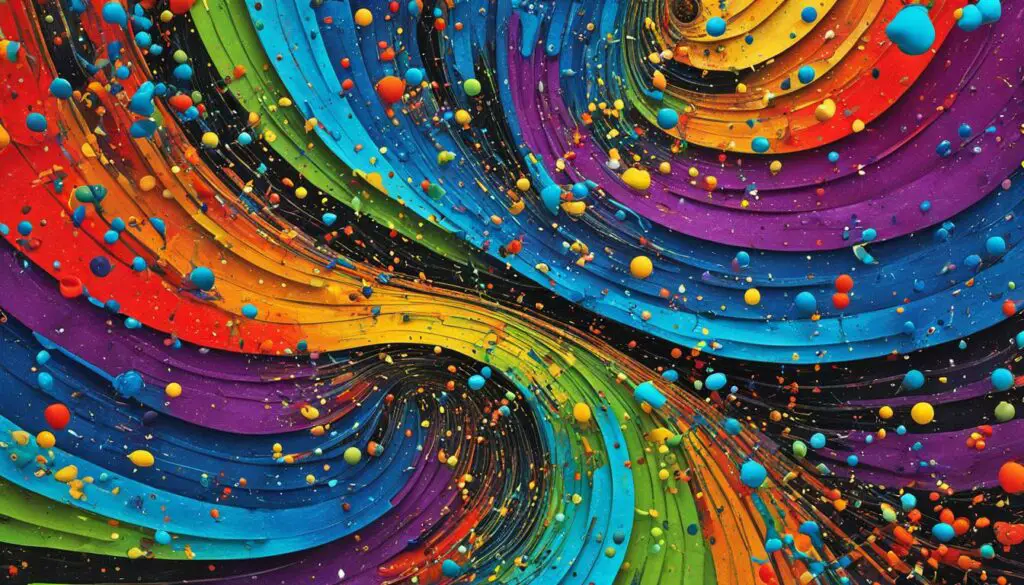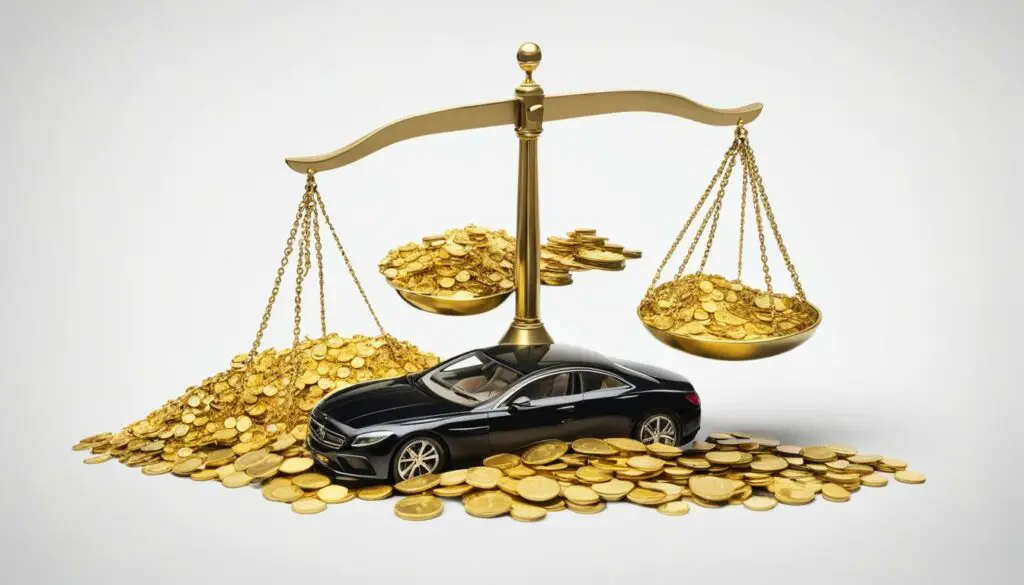Originally posted on January 9, 2024 @ 5:43 am
Welcome to our thought-provoking journey into the unpredictability of life. Have you ever felt that life is unfair, that luck plays an unjust role in determining our outcomes? You are not alone in grappling with this perception. In this article, we will delve into the interplay between luck and fairness, exploring the nature of unfairness in life and challenging common misconceptions.
Life’s fairness is deeply influenced by our perception of what is fair, which stems from our upbringing and values. However, it is crucial to recognize that life does not play by our individual rules. Each person experiences life’s challenges and circumstances differently, and these experiences shape our understanding of fairness. The belief that we are entitled to certain outcomes can contribute to the perception of unfairness.
Nassim Nicholas Taleb’s book, “Fooled by Randomness,” sheds light on the role of luck in success. It argues that wild success often hinges on fortunate events and the absence of negative rare occurrences. This challenges the notion that success is solely based on merit or skill. Survivorship bias, the tendency to focus on successful individuals while ignoring the invisible alternatives, further distorts our perception of fairness. Rare events, which have a disproportionate impact, demonstrate the influence of chance in our lives.
Life’s unfairness can be attributed to a combination of chance and personal choices. Chance events, both positive and negative, can greatly impact our lives and are often beyond our control. Conversely, our choices in response to these circumstances also contribute to feelings of unfairness. Moreover, factors such as unequal opportunities and social disparities can amplify our sense of injustice.
Unfairness is a subjective concept that arises when our expected outcomes differ from reality. It varies from person to person, shaped by individual values and experiences. Understanding our perception of unfairness can provide insights into our values and priorities, enabling us to address and combat injustices in our lives and communities.
In this article, we will explore the reasons behind life’s unfairness, challenge common misconceptions, and discuss the power of mindset in navigating unfairness. We will also examine the importance of accepting life’s unpredictability while finding inspiration amidst the challenges it presents. So, let’s embark on this journey together and gain a deeper understanding of how life’s randomness intertwines with our notion of luck and fairness.
Key Takeaways:
- Life’s fairness is influenced by our perception of what is fair, shaped by our upbringing and values.
- Luck plays a significant role in success, challenging the misconception that it is solely based on skill or merit.
- Unfairness in life arises from the interplay of chance events and personal choices.
- Understanding our perception of unfairness allows us to address and combat injustices in our lives and communities.
- Life’s unpredictability requires us to develop adaptability and find strength amidst challenges.
The Role of Luck in Success

In our pursuit of success, the role of luck is often overlooked. Nassim Nicholas Taleb’s book “Fooled by Randomness” sheds light on the profound impact luck has on our lives and challenges the misconception that success is solely based on merit and skill. The unfair nature of luck becomes apparent when we examine the phenomenon of wild success, characterized by significant wealth and fame. In many cases, such success can be attributed to a series of fortunate events and the absence of negative rare events.
Survivorship bias further distorts our perception of success. We tend to focus on the individuals who have achieved great heights, assuming they represent the norm in their respective fields. However, we often overlook the invisible alternatives and fail to acknowledge the role of luck in individual successes.
“Rare events, which have a disproportionate impact on our lives, further illustrate the power of chance.”
Therefore, it is crucial to approach track records with caution, especially in luck-based professions. Past accomplishments may not necessarily guarantee future success, as luck can play a significant role in determining outcomes. Recognizing the influence of luck on success and understanding its unfair nature is essential for cultivating a more balanced perspective and fostering equality.
The Unfair Nature of Luck
Luck, by its very nature, is unpredictable and uncontrollable. It can bestow great fortune upon some while leaving others to face hardship. This inherent unfairness challenges the notion that success is solely a product of individual effort and skill. It reminds us that external factors beyond our control, such as chance and opportunity, play a significant role in shaping our outcomes.
Moreover, rare events further exemplify the power of luck. These extraordinary occurrences can have a profound impact on our lives, shaping our trajectory and influencing the degree of success we achieve. To ignore the influence of luck is to disregard the fundamental truth that fairness is not inherent in life’s workings.
Striving for Equality
Recognizing the influence of luck on success is a crucial step towards building a more equitable society. It urges us to challenge conventional notions of meritocracy and foster a more inclusive understanding of achievement. Emphasizing the role of luck in success promotes empathy and encourages us to address systemic inequalities that limit opportunities and perpetuate unfairness.
- By advocating for equal access to education and resources, we can minimize the impact of luck on one’s chances of success.
- Creating environments that value diverse perspectives and experiences allows us to challenge the status quo and foster a more inclusive society.
- Institutionalizing policies and practices that mitigate the role of luck in determining outcomes can help level the playing field.
By actively striving for equality, we can move closer to a society where success is not solely determined by luck but by the meaningful contributions individuals make to their communities.
The Nature of Unfairness in Life
Life is often riddled with unfairness, leaving us to question why things don’t always go our way. The unfairness of life can be attributed to two key factors: chance or luck and the choices we make.
Chance plays a significant role in the events that unfold in our lives. Sometimes, luck favors us, leading to positive outcomes and opportunities. Other times, luck may seem to work against us, presenting challenges and setbacks. The unpredictable and uncontrollable nature of life adds to the perception of unfairness.
Meanwhile, our choices also shape the way we experience life’s unfairness. How we respond to circumstances and setbacks can determine the course of our journey. Our choices can either empower us to overcome obstacles or contribute to an ongoing sense of unfairness.
Unfairness in life can also be influenced by external factors such as unequal opportunities, social disparities, and location-based advantages or disadvantages. These external factors can create an imbalance and contribute to the perceived injustice that exists in society.
However, accepting that life is not always fair does not mean accepting defeat. It is crucial to embrace a mindset of resilience, focusing on personal growth and seeking opportunities for positive change. By acknowledging the unfairness of life and working towards creating a more just future, we can make a difference in our own lives and the lives of others.
| Factors Influencing Unfairness in Life | Examples |
|---|---|
| Unequal opportunities | – Limited access to education and employment opportunities for certain individuals – Wage gaps and income inequality |
| Social disparities | – Discrimination based on race, gender, or other factors – Inequitable distribution of resources and privileges |
| Location-based advantages/disadvantages | – Access to healthcare, infrastructure, and quality of life varying based on geographical location – Disparities in educational facilities and opportunities in different regions |
While life may not always seem fair, it is through acknowledging and understanding the unfairness that we can find the strength to navigate the challenges. By cultivating resilience and working towards justice, we can create a more equitable and compassionate world.
What Is “Unfairness”?

Unfairness is a subjective concept that arises when there is a discrepancy between the expected outcome of a situation and the actual result. It is experienced when we encounter obstacles or receive outcomes that are not aligned with our efforts.
The perception of unfairness varies from person to person, influenced by individual values and experiences. What one person may view as unfair, another may perceive as just. This subjectivity stems from our unique perspectives, shaped by our upbringing, cultural background, and personal beliefs.
However, recognizing and acknowledging feelings of unfairness can provide valuable insight into our personal values and priorities. It helps us understand what we consider to be just and how we define fairness. This self-awareness allows us to better address and combat injustices in our own lives and communities.
“Fairness is not an external criteria in the world, it is a reflection of our personal values and judgments.” – [Third source]
By reflecting on what we perceive as unfair, we can uncover the underlying reasons behind our feelings and evaluate whether they align with our core values. This introspection empowers us to make informed decisions and take action towards creating a more just society.
The Reasons Behind Life’s Unfairness

Life can often feel unfair, and this perception is shaped by the interplay of chance and personal choices. Chance events, whether positive or negative, have the power to significantly impact our lives. Winning the lottery, for example, can change our financial situation overnight, while experiencing unexpected hardships can upend our sense of stability. These chance events are often unpredictable and beyond our control, adding to the perception of life’s unfairness.
Simultaneously, the choices we make in response to the circumstances we face can contribute to feelings of unfairness. Our personal choices, such as associating with detrimental individuals or making poor decisions, can lead to negative outcomes. These choices can create a sense of unfairness as we reflect on how our actions have influenced our circumstances.
Understanding the roles of chance and personal choices allows us to accept life’s challenges gracefully and recognize our power to initiate positive change. While chance events may be outside of our control, we can take responsibility for our choices and strive to make better decisions moving forward. By recognizing the impact of chance and personal choices, we can navigate life’s unfairness with greater resilience and purpose.
Embracing the understanding that life’s unfairness is a result of both chance and personal choices empowers us to take control of our own narrative and shape our future. While we may not always have control over the circumstances we face, we have the power to choose how we respond and the actions we take. By making conscious and informed choices, we can actively work towards creating a more just and fair world for ourselves and others.
Circumstances Influenced by Chance and Personal Choices
| Circumstances | Chance Events | Personal Choices |
|---|---|---|
| Financial Situation | Winning the lottery | Investing in education |
| Relationships | Meeting a supportive partner | Choosing trustworthy friends |
| Career Path | Job loss due to economic downturn | Continuing education for career advancement |
| Health | Unexpected illness or injury | Adopting a healthy lifestyle |
Common Misconceptions About Life’s Fairness

In our pursuit of understanding life’s fairness, many misconceptions can distort our perceptions. Let’s explore and challenge some of these common misconceptions:
Life is Always Easy
One common misconception is the belief that life should always be easy and without challenges. In reality, life is filled with ups and downs, obstacles, and struggles. It is through facing these challenges that we grow, learn, and develop resilience. Difficulties shape our character and provide valuable opportunities for personal growth.
Success Depends Only on Connections
Another misconception is that success is solely determined by personal connections or luck. While connections can provide opportunities, true success is often the result of hard work, determination, and perseverance. It is the dedication and effort we put into our goals that ultimately lead to achievement.
True Happiness is Materialistic
Many people mistakenly believe that material possessions guarantee happiness. However, true happiness goes beyond material wealth and possessions. It stems from fulfilling relationships, personal growth, and experiences that bring joy and meaning to our lives. Materialistic pursuits may provide temporary pleasure, but lasting happiness comes from within.
By questioning and challenging these misconceptions, we can develop a more accurate understanding of life’s fairness. It allows us to appreciate the importance of challenges, recognize the value of hard work, and seek genuine happiness through meaningful experiences.
| Common Misconceptions | Reality |
|---|---|
| Life is always easy | Life is filled with challenges and struggles that contribute to personal growth. |
| Success depends only on connections | Success is the result of hard work, determination, and perseverance. |
| True happiness is materialistic | True happiness comes from meaningful experiences and personal fulfillment. |
Challenging these misconceptions allows us to embrace a more balanced and accurate perspective on life’s fairness. It opens the door to personal growth, success through hard work, and the pursuit of genuine happiness.
Reasons Why Life Can Seem Unfair

The feeling of unfairness in life can be attributed to various factors. One reason is the perception of powerlessness when faced with unpredictable and uncontrollable circumstances. It’s natural to feel a sense of frustration and injustice when events unfold beyond our control, leaving us with a feeling of powerlessness. This can heighten our perception of life’s unfairness as we struggle to find a sense of agency in these situations.
Additionally, unequal opportunities and location-based disparities play a significant role in shaping our experiences of unfairness. Individuals from lower socioeconomic backgrounds often face limited access to education and employment opportunities, which can perpetuate a sense of inequality. Unequal distribution of resources based on geographical location can also impact financial stability and overall quality of life, further contributing to the perception of unfairness.
By acknowledging these factors, we can cultivate empathy and understanding towards those facing unfairness. Recognizing the unequal distribution of opportunities and the influence of location-based disparities can motivate us to work towards creating a more equal and just society for all.
The Power of Mindset in the Face of Unfairness

While life’s unfairness may be external and out of our immediate control, our mindset and attitude towards it can greatly influence our experience. In the face of unjust circumstances, our mindset becomes a powerful tool for shaping our perspective on injustice and fostering a mindset for justice.
Our mindset encompasses the stories we tell ourselves, the beliefs we hold about why certain situations are the way they are. It has the potential to either perpetuate inequality or advocate for fairness. By investing time in self-reflection, challenging negative biases, understanding historical oppressions, and recognizing our own privilege, we can cultivate a mindset that promotes solidarity and positive change.
“The mindset we adopt can amplify or diminish the unfairness we perceive in the world. It is through a growth mindset and a commitment to justice that we can effect meaningful change.”
The Perspective for Justice
Developing a perspective on injustice allows us to see beyond our own experiences and empathize with those facing unfairness. By broadening our understanding of systemic inequalities and ongoing struggles, we can better advocate for equality and fairness.
Understanding the historical context of oppression and the ways in which society perpetuates unfairness enables us to challenge and dismantle unjust systems. It is essential to recognize our own privilege and use it as a platform to uplift marginalized voices.
The Path to Positive Change
In order to promote justice in the face of unfairness, it is crucial to embrace our own power and strength. By acknowledging that change starts from within and that we have the capacity to make a difference, we can contribute to creating a more just future.
Advocating for justice requires both individual and collective action. By engaging in conversations, supporting organizations fighting for equality, and participating in community initiatives, we can create tangible change and challenge the unfairness we encounter.
Embracing Life’s Unfairness and Finding Inspiration

Rather than letting the feeling of unfairness consume us, it is essential to accept and find inspiration in life’s unfairness. While it’s okay to question the reasons behind unfairness, dwelling on it without positive action can lead to a sense of resignation.
“Accepting life’s unfairness is the first step towards finding strength and resilience.”
– Dr. Maya Johnson, Psychologist
Instead, we can focus on the strength and resilience we develop through our own difficult journeys. These experiences shape us and give us the tools to overcome challenges.
By channeling our experiences, we can advocate for fairness in our own lives and communities. Whether it’s standing up against injustice or lending a helping hand to those in need, our actions can make a difference.
“Believing in a better future starts with taking action in the present.”
– Sarah Thompson, Social Activist
Having a belief in a brighter future can act as a guiding force. It fuels our determination to create positive change and contributes to the collective effort of building a fairer society.
By believing in a better future and using our convictions to drive positive change, we can uplift ourselves and others amidst life’s unfairness. Together, we can create a world that is more just and equitable for all.
The Unpredictable Nature of Life
Life’s unpredictability is a constant reminder that challenges and obstacles are inevitable. No matter how carefully we plan or how diligently we make decisions, unexpected twists and turns will inevitably arise on our journey. The unpredictability of life can often make it feel unfair, especially when success is not solely determined by our efforts or merit.
However, instead of succumbing to the perceived unfairness, it is crucial to embrace the unpredictability and develop adaptability. By acknowledging that life’s path is filled with unforeseen hurdles, we can better equip ourselves to navigate the challenges that come our way.
Adapting to life’s unpredictability requires a resilient mindset and the willingness to embrace change. Rather than resisting and bemoaning the unfairness of unexpected events, we can choose to view them as opportunities for growth and learning. It is through these challenges that we discover our true strength and resilience.
“Life is what happens when you’re busy making other plans.” – John Lennon
John Lennon’s quote encapsulates the essence of life’s unpredictability. It serves as a poignant reminder that no matter how meticulously we map out our lives, it is the unexpected that often shapes our journey the most.
Developing adaptability enables us to navigate life’s challenges with grace and resilience. It gives us the flexibility to adjust our plans when circumstances change, and to discover new paths that we would have otherwise overlooked.
The Need for Adaptation
Adaptation is not merely a reaction to life’s unpredictability but an essential tool for thriving in an ever-changing world. It allows us to embrace new opportunities, transcend limitations, and find innovative solutions to the obstacles we encounter.
In the face of adversity, adaptation empowers us to persevere and overcome challenges. It enables us to reassess our goals, adjust our strategies, and forge a new path forward.
- Embrace change – Life’s unpredictability demands a willingness to adapt to new circumstances and embrace change. Just as a tree bends with the wind, we must be flexible and open-minded.
- Learn and grow – Each challenge and obstacle presents an opportunity for personal growth and learning. By adapting, we can gain valuable insights and acquire new skills.
- Resilience in the face of setbacks – Adaptability allows us to bounce back from setbacks and failures. It instills resilience and the determination to continue pursuing our goals.
- Seize new opportunities – Embracing life’s unpredictability opens doors to new possibilities and unexplored paths. By adapting, we can seize opportunities that may have otherwise gone unnoticed.
Life’s unpredictability may make it feel unfair at times, but by embracing the need for adaptation, we can navigate the challenges and obstacles that come our way. Through resilience and a flexible mindset, we can turn adversity into opportunity and create a fulfilling and meaningful life.
Conclusion
Life’s fairness is a complex and multifaceted concept influenced by chance, personal choices, and external factors. It is important to recognize that life is not always fair, but this does not mean accepting defeat. By understanding the role of luck, challenging misconceptions, embracing a positive mindset, and finding inspiration amidst unfairness, we can navigate life’s challenges with resilience and work towards creating a more just future.
Although the unpredictable nature of life can sometimes feel unfair, it is up to us to adapt and find strength in the face of adversity. We must acknowledge that chance events and personal choices both play a significant role in shaping our lives. By accepting that some things are beyond our control, we can focus on the choices we make and strive for positive change.
By challenging misconceptions about life’s fairness, such as the belief that success is solely determined by luck or connections, we can attain a more balanced perspective. True happiness is not found in material possessions but in meaningful experiences and personal growth. Through a positive mindset and a commitment to justice, we can overcome the challenges of unfairness and inspire others to do the same.
FAQ
What causes the feeling of unfairness in life?
The feeling of unfairness in life can be caused by a variety of factors, including the interplay of chance and personal choices, unequal opportunities, social disparities, and the influence of geographical location.
Is success solely based on luck?
No, success is not solely based on luck. While luck can play a role in success, factors such as hard work, perseverance, and skill also contribute to achieving success.
What is the perception of unfairness?
The perception of unfairness arises when there is a discrepancy between the expected outcome of a situation and the actual result. It is influenced by individual values and experiences.
How does chance affect life’s fairness?
Life’s fairness can be affected by chance events, which are often unpredictable and beyond our control. These events can have a significant impact on our lives and contribute to feelings of unfairness.
What are some common misconceptions about life’s fairness?
Some common misconceptions about life’s fairness include the belief that life should be easy, that success is solely based on personal connections or luck, and that material possessions guarantee happiness. Challenging these misconceptions allows for a more accurate understanding of life’s fairness.
Why does life sometimes seem unfair?
Life can seem unfair due to factors such as the feeling of powerlessness in the face of uncontrollable circumstances, unequal opportunities, and location-based disparities that affect access to opportunities and financial stability.
How does mindset influence our experience of unfairness?
Our mindset greatly influences our experience of unfairness. By developing a positive mindset, challenging negative biases, and recognizing our own privilege, we can advocate for fairness and contribute to positive change.
How can we find inspiration in life’s unfairness?
Instead of allowing the feeling of unfairness to consume us, we can find inspiration by embracing our own strength and resilience. By advocating for fairness in our own lives and communities, we can create positive change amidst life’s unfairness.
Why is life unpredictable?
Life is unpredictable because it is filled with unexpected challenges and obstacles. This unpredictability can make life feel unfair, as success is not solely determined by our efforts or merit. However, adapting to this unpredictability is essential for navigating life’s challenges.
How can we navigate life’s unfairness?
Navigating life’s unfairness requires accepting that life is not always fair, challenging misconceptions, developing a positive mindset, and embracing our own power to initiate positive change. By recognizing the role of luck and personal choices, we can navigate life’s challenges with resilience and work towards creating a more just future.
